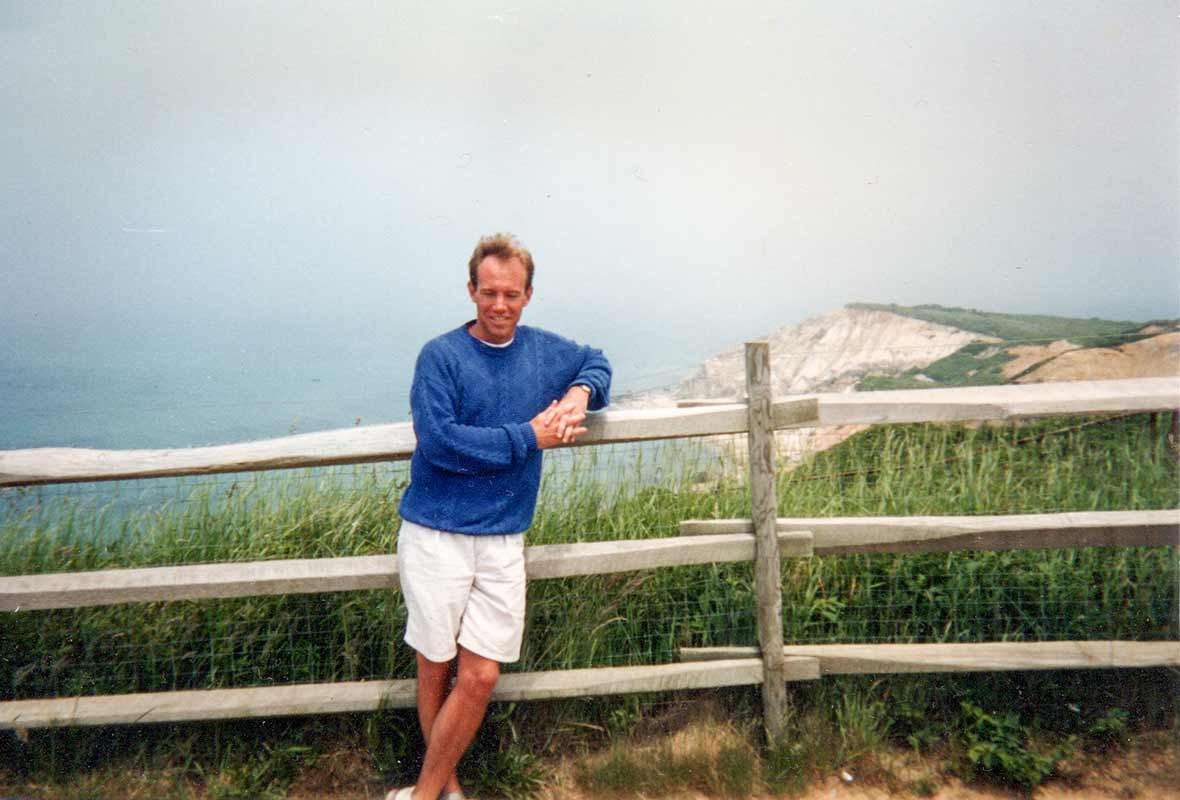
And if you’ll indulge me for a moment, I’d like to say to The One: My love, we’ve been together for almost a quarter of a century (which, as you know, is something like 69 in straight years), and we’ve faced incredible, seemingly insurmountable challenges. But I can say, from the cradle of my soul, I’m a better person for having fallen in love with you. Happy anniversary, Poppy.--David
The first batch arrived from the magazine after a week. A fat manila envelope, full of letters from self-described eligible men. I dropped onto the couch and stared at the packet in my hands. I should be more excited, I thought.
The last time I’d placed a personal ad, the one in the Village Voice, it had been a sideshow of gay oddities. It reminded me of Mystery Date, a board game I used to play with some of the girls on Brownell Street. In the middle of the board was a plastic door. When it was your turn to open it, fate would match you with a swimmer in sexy tight trunks, a dreamy Ivy Leaguer wearing a Baracuta jacket and carrying a bowling bag, a tow-headed skier in his lodge-appropriate sweater, or what I dreaded most: a bum. Filthy clothes and all. If recent history was any indication, my chances for a happy date had been better when I was eight.
Which is why I worked for days on this new ad. I approached it like it was one of the products I sold–IKEA, WordPerfect, IBM, President Bill Clinton–at the ad agency where I was a copywriter. After many drafts, and reams of corrections from my best friend Becca, this appeared in the September 27, 1993 issue of New York magazine.
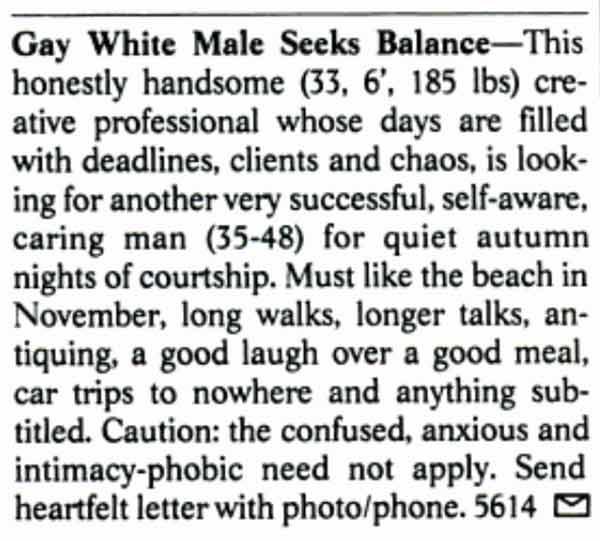
I heaved a sigh and tore into the envelope. The first letter I pulled out was written on light blue stationery lipped in royal blue. Inside, a picture of a man. A short intake of breath. He was beautiful. He was wearing a sapphire-blue sweater (obviously, blue was a favorite color) and white shorts, and was standing in front of a split-rail fence. Beyond were craggy cliffs and, farther, the ocean, bleeding into fog. He had his left arm slung over the top rail, his hands clasped, his legs crossed at the ankles. Casual, but not in that studied way I’d seen before. Decorous, even. No private parts practically pressed up against the lens. No possessions stuffed into the frame to clue me into his financial status. In fact, he took up so little of the picture, it was more a photograph of the ocean than anything. I flipped it over. On the back he had written, “Terrible picture, great beach!” I stood and held it under a lamp to get a better view. I was right; his eyes were closed. And his hair, dirty blond and receding, was ruffled by the wind, like a rooster’s comb. I was beguiled and relieved. Although this man was very handsome, there was no vanity in the picture.
He wrote that his name was Alan Dunkelberger, “a 35-year-old man who sells Manhattan real estate to make a living.” What an odd way to put that. Most men would have said, “I’m a real estate broker,” or “I sell real estate.” I wondered if perhaps he was foreign. As I read on, the photograph made sense. He wrote that it was taken on Martha’s Vineyard, one of his favorite places. He explained that the beach was his getaway, where he was most himself. He closed with, “You said to write a heartfelt letter. I feel as though I’ve written a book . . . so, why don’t you pick up the phone right now and call me. Don’t wait!”
Minutes later we were talking. His voice was deep, and I could hear the smile in it, curling up the ends of his sentences. The conversation veered from work to theater to the beach to books. It was peppered with all sorts of questions, always followed by “And what about you?” Unlike the guys who had answered my previous ad, he wasn’t halfhearted or preoccupied, dividing his time between me and Entertainment Tonight. Plus, the phone gave me distance to focus on what he was saying and not get caught up in his looks, or how I looked, or what we would look like on our Christmas cards.
We agreed to meet at Top of the Sixes at nine forty-five on October 4. I chose the time—after my group therapy with my shrink David Lindsey and seven other gay men finished. Alan picked the place—for the atmosphere. I’d never been to the restaurant, which was on the top of 666 Fifth Avenue, hence the name. He said he liked the view, and the understated elegance and quiet of the bar.
Walking down Fifth Avenue, I felt the frisson I always experienced on blind dates. The potential, the possibility. Then I saw him, and my heart sank. Once again a man had misrepresented himself. He stood at the entrance to the building in a camel jacket, white dress shirt opened one too many buttons for my conservative tastes, spray-painted-on jeans, and cowboy boots. Fire Island queen, I thought, and I was drained of hope.
It was a polite date, the kind you smile through wanly, the whole time wondering if you can make it back in time to catch the end of Murphy Brown. The conversation didn’t exactly ping-pong like it had on the phone. On the other end of the line, safe within the fantasy of his being an unaffected guy—one who unselfconsciously admitted to loving McDonald’s, and who actually said things like “Holy go to war!”—I had been curious and interested. But seeing that he was one of the Beautiful People who, I was certain, did Beautiful Things in Beautiful Places, the kind who moved effortlessly from parties in Fire Island to East Hampton and who was, in all likelihood, fond of under-eye night-repair cream, nude sunbathing, and drinks with umbrellas in them, I just couldn’t muster the energy.
I was about to call it a night when he asked about my other experiences with personal ads. I told him about the seventy or so letters I’d gotten in response to my Village Voice ad, which I’d winnowed down to about a dozen dates with exhibitionists, fetishists, utterly nice but utterly boring suits. I mentioned that peculiar little man Gabe Newman. Gabe was notorious among my circle of friends. On our first date, in early January, he dragged a dead Christmas tree into Temple Bar and asked the bartender to give his new friend–Mr. Tannenbaum–a drink.
“Wait,” he said. “Did you say ‘Gabe Newman’?”
“Is he a friend of yours?” I answered, glad that I hadn’t said anything insulting.
“Not really. I dated him, too. Through his ad.”
“Get . . . out . . . of . . . town. When?”
I waved over the waiter and ordered two more gimlets and another bowl of nuts. Flipping through our Filofaxes, we figured out that I’d dated Gabe first. I recounted Gabe’s need to rescue Christmas trees. Alan’s eyes grew big. I could see he was trying to reconcile someone he’d found to be a pretentious, onerous man with the self-proclaimed “Jewish rapscallion” I’d had drinks with.
“That little shit!” I said when Alan told me some of the things Gabe had said to him about dating, men, and relationships. “Don’t believe him for a minute,” I added. “Those are my lines. I said those things to Gabe.”
“And he made believe he came up with them.”
“I hope you were impressed.”
“I was.”
“Well, you’re looking at the real thing. I’m the original Broadway cast. He’s merely a bad bus-and-truck company.”
The rest of the room fell away as we laughed about Gabe and the many men we had met, the few we had dated. Although Alan looked like the guys who intimidated me, who stared right through me on the streets and ignored me at parties, he wasn’t one of them. He hated the pretension and the posturing of the gay scene as much as I did. When I relaxed, I found my way to that man in the picture. His easy charm, his honesty, even innocence. I knew at that moment he would never sunbathe in the nude.
Eventually, the waiter slipped the bill on the table between us. “Let me give this to you,” he said, pointing to the room. “We’re closing.” I swiveled in my seat. The restaurant, which had been packed when we’d arrived, was empty. Waiters were flipping chairs and sliding them on top of tables. I looked at my watch. We’d been there for hours.
Outside, Alan stood under a streetlamp that painted everything a ghastly orange. Through the liquid haze of several gimlets, he seemed on fire, the light burning through his hair and the edges of his jacket.
“What’s the matter?” he asked.
“Nothing.” I took in Alan, that horrid light, the street behind. I wanted to imprint it, a caramel-colored Kodachrome slide, so that, regardless of what would happen between us, I would always remember what a wonderful first date felt like.
We stood facing each other, suddenly silent and awkward. I tapped the point of his very Urban Cowboy boots with the toe of my penny loafer.
“Dimes, huh?” he said, pointing to my shoes. I suddenly felt silly, self-conscious. Then, “I had a great time.”
“Me, too.”
“I’d really like to get together again.”
Relieved, I answered, “Me, too.”
He didn’t try to kiss me, which I found endearing, and refreshing. Instead, we shook hands. As he headed up Fifth Avenue, I waited for a cab back to Brooklyn. I watched to see if he would turn around, and he did. Once, twice, three times. You could fall in love with a guy who turned around three times.
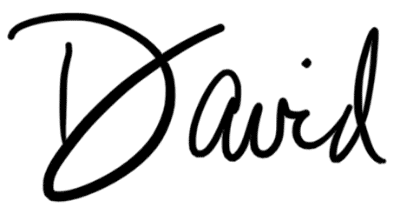
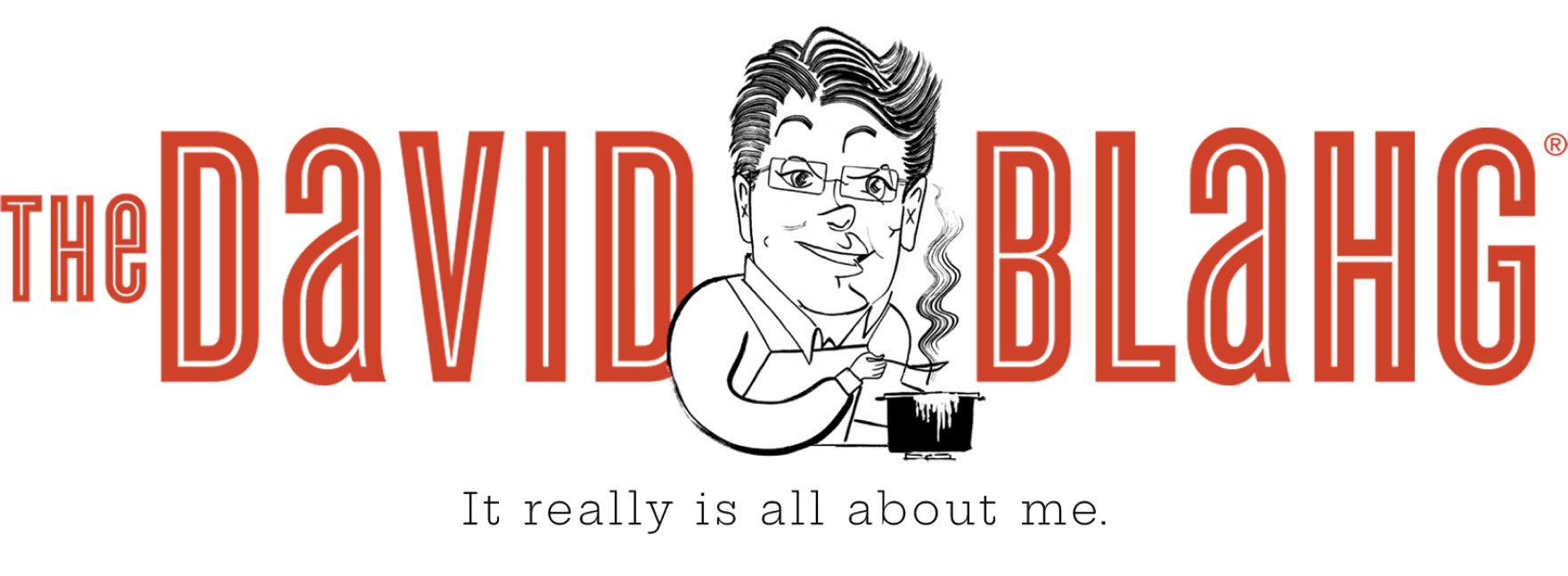
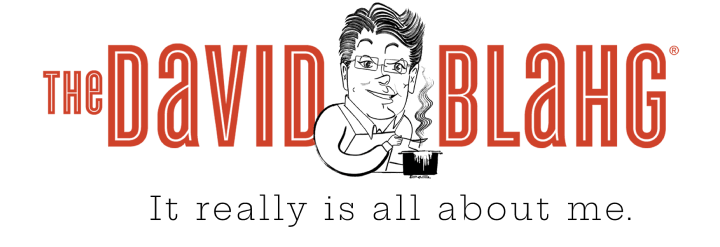










That was sweet. I like first date stories like these. Mine also ended in a similar way. He asked if he could see me again. I said ‘yes’ because earlier at dinner as we chatted, I thought “Wow…I think I can see this man again”. A profound reaction given that on the last 5 dates I had with other men, I knew within 10 minutes that there would be no second date. Congrats! Isn’t it almost surreal when you finally meet your One?
Thanks, AnnieN. It is weird how your heart knows. Sometimes before you. Take a listen to this.
It Only Takes a Moment | Gavin Kreel | Hello, Dolly!
That was nice. Thank you.
You’re welcome, AnnieN.
Congratulations, David! Loved reading this again! Continued love & support to each other as well as literary adventures!
Thanks, Ilda!
What you two have together is a bit of magic. What special men you both are. I enjoy reading every word you write, David, but this? This will take me through the day with a quiet smile. Your happiness radiates.
Laurie, I’m honored! Thank you.